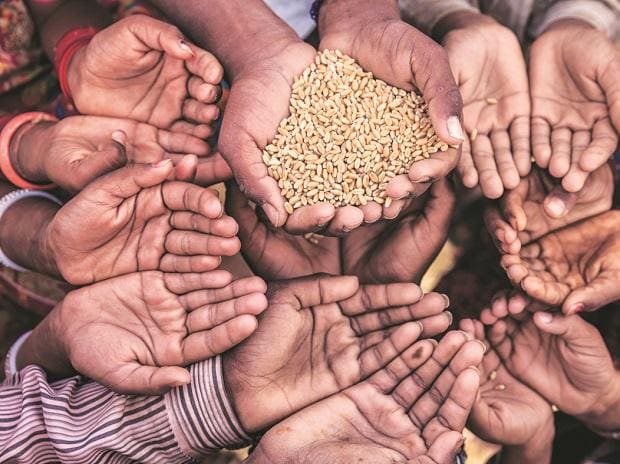[ad_1]
The world is in its “steepest slowdown” since 1970 and 685 million people could be living in extreme poverty by the end of 2022, a report by World Bank said on Tuesday. This would make 2022 the second-worst year for poverty reduction in the past two decades, after 2020.
The “2022 in Nine Charts” report said that 7 per cent of the world’s population-roughly 574 million—will be in extreme poverty in 2030. It is shorter than the global goal of 3 per cent set earlier by the World Bank.
“In addition to the lingering effects of the pandemic, rising food and energy prices—fueled by climate shocks and conflicts such as the war in Ukraine—have hindered a swift recovery,” the report said.
It added that the debt crisis in developing countries has intensified in the last one year. 60 per cent of the world’s poorest countries are either in debt distress or at risk of it. Moreover, the composition of debt has changed dramatically since 2010 with private creditors playing a key role in it now.
“Over-encumbered with debt, the world’s poorest are not able to make critical investments in economic reform, health, climate action, or education – among other key development priorities,” the report said.

According to the World Bank, the shocks to the energy markets in the first half of 2022 have slowed down the progress to providing universal access to affordable energy by 2030.
733 million people currently have no access to electricity and by 2030, 670 million people will remain without it. It is 10 million more than 660 million projected by the World Bank in 2021.
All gains in learning poverty achieved since 2000 have likely been lost, especially in low and middle-income countries, the report said. For every 100 children in low and middle-income countries, 60 are now “learning deprived” and 10 are deprived of schools.
“If these losses are not reversed, they will lower the future productivity and lifetime incomes of today’s children and youth and also harm their countries’ economic prospects and lead to greater inequality and increased risks of social unrest,” it said.
As a response to the learning crisis, the countries should keep schools open and increase instructional time, assess students and equip teachers to match instruction to students’ levels of learning, Streamline the curriculum and focus on foundations and create a national political commitment for learning recovery.
[ad_2]
Source link



